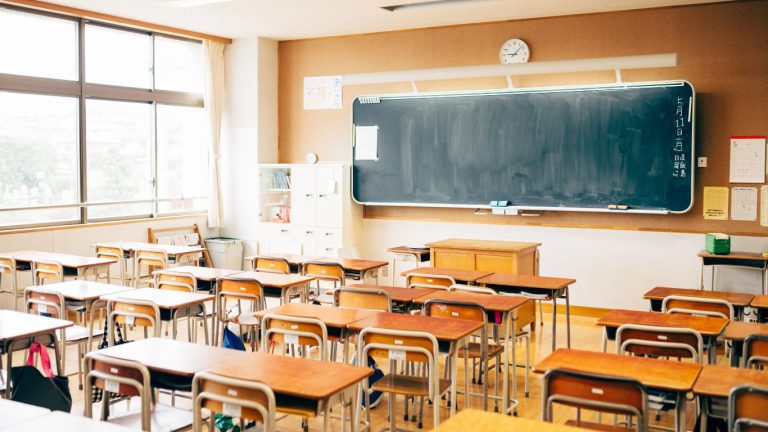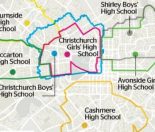If you’re anything like me, you’ve probably heard the term school deciles thrown around over the years—at school meetings, in news articles, or from other parents chatting at pick-up. It’s one of those things we all nod along to, even if we’re not entirely sure what it means. But here’s the thing: the old decile rating system has officially been phased out and replaced by something new—called the Equity Index.
Now, before you panic thinking “Another thing I need to get my head around?”, don’t worry—this article will walk you through what the decile system was all about, why it’s been replaced, and what this new Equity Index actually means for your child’s school.
Even though the decile system is now considered outdated, you might still come across the term from time to time, especially in older documents or when talking to parents who’ve had children in school for a while. So it’s helpful to know how it worked and how the new system compares.
At the end of the day, we all just want to make the best choices for our kids’ education—and having a clear understanding of how schools are resourced and supported is a good place to start.
What Were Deciles? (The Old System)
So, what actually were school deciles?
In simple terms, the decile system was a way the New Zealand government grouped schools based on the general socio-economic background of their students’ families. Schools were given a number from 1 to 10—Decile 1 schools were in communities with the highest levels of social and economic disadvantage, while Decile 10 schools were in more affluent areas.
It’s important to understand that these numbers had nothing to do with how good or bad a school was. A Decile 1 school wasn’t a “bad” school, just as a Decile 10 school wasn’t necessarily “better.” The decile rating was purely a funding tool, used to work out how much additional support a school might need to help its students succeed.
The idea was that schools in lower socio-economic areas often faced more challenges, so they’d receive more government funding to level the playing field a bit. It wasn’t perfect—and as you’ll soon read, it had its flaws—but at its heart, the decile system was meant to be about fairness, not judgement.
What Factors Made Up a School’s Decile Rating?
You might be wondering how those decile numbers were actually worked out. It wasn’t just a finger in the air or based on the school itself—it was all about the community around it.
The Ministry of Education looked at five key factors taken from census data to help determine each school’s rating:
- Household income – the percentage of families in the area with very low incomes.
- Occupation – how many parents were in low-skilled jobs.
- Household crowding – basically, how many people were living in a home compared to how many bedrooms there were.
- Parental education – the number of parents without school or tertiary qualifications.
- Income support – the proportion of parents receiving government benefits.
So, the lower the income and qualifications in the community, and the more overcrowded or reliant on support families were, the lower the school’s decile rating would be. It wasn’t perfect, but the idea was to make sure schools in communities facing more challenges got a bit of extra help where it was needed most.
Again, just to be clear—this information wasn’t about individual families or students. It was all based on averages across the community, and it didn’t reflect the actual education or care your child would receive at a particular school.
Common Misconceptions About Deciles
One of the biggest problems with the old decile system was how misunderstood it was—especially among parents.
It was really easy to fall into the trap of thinking a higher decile meant a “better” school. I’ve even heard mums say things like, “Oh, we didn’t look at that school—it’s only a decile 3,” as if that number somehow reflected poor teaching or bad outcomes. But honestly, that couldn’t be further from the truth.
The decile number was never meant to measure how well a school performed, how caring the teachers were, or how happy the kids were. It had nothing to do with academic achievement or school quality. It was simply a way to distribute funding more fairly, based on the needs of the school’s wider community.
Unfortunately, over time, those numbers started to carry a bit of a stigma. Some families would avoid lower-decile schools altogether without really understanding what the rating meant. And in many cases, those schools were doing an incredible job with fewer resources, serving amazing communities full of heart.
So if you ever find yourself chatting with someone who still brings up a school’s decile rating, you can gently let them know—it was a funding label, not a quality score.
Real-Life Impact of the Decile System
While the decile system was mainly about funding, it did end up having some knock-on effects in everyday school life.
For lower-decile schools (say, Decile 1–3), the government provided more financial support. This was meant to help cover extra learning needs, support staff, and resources for things like free lunches, school trips, or learning aides. These schools were often dealing with bigger challenges, so the funding helped level the playing field a bit.
On the other hand, higher-decile schools (Decile 8–10) received less funding and often relied more heavily on parental donations, fundraising events, and extra fees. You might notice that these schools sometimes had flash facilities or extra programmes, but that often came down to the families chipping in more.
One thing to be mindful of is how the decile label affected public perception. A school’s reputation could take a hit just because it was a lower decile—even if it had brilliant teachers, strong leadership, and happy, thriving students.
It’s a bit heartbreaking really, because some of the most nurturing, community-driven schools in the country were written off by people who didn’t understand what the number actually meant.
The Shift to the Equity Index
In 2023, the government officially waved goodbye to the old decile system and rolled out something new: the Equity Index. And honestly? It’s a much-needed upgrade.
The Equity Index (sometimes shortened to EQI) is designed to be a fairer, more detailed way of figuring out which schools need the most support. Instead of relying on just five census-based factors like the old decile system, the Equity Index uses 39 different indicators—yes, 39! That means a far more accurate picture of what challenges children might be facing in their learning environments.
It includes things like whether a child has moved schools frequently, whether their parent or caregiver has been in prison, or whether their whānau has been supported by certain government services. It’s not about labelling kids—it’s about understanding the realities they’re coming from, and making sure schools get the funding to support them properly.
One of the best changes? The Equity Index numbers aren’t public. That means schools won’t be judged based on a single number anymore, and parents won’t accidentally use that number to make assumptions about school quality. It helps take away the stigma that was tied to deciles, while still ensuring that extra resources go to the schools that truly need them.
So while the system is still all about fairness, it’s now more thoughtful, more nuanced, and a lot less likely to be misunderstood.
Key Features of the Equity Index
Alright, let’s unpack what this new Equity Index actually looks like—without getting too technical (because let’s be honest, none of us are in the mood for a government policy deep-dive after a long day wrangling kids!).
Here’s what you need to know:
-
Each school now has an Equity Index number—a three-digit score that helps the Ministry of Education decide how much funding the school receives. The higher the number, the more support that school may need.
-
It’s based on real-life data, not just census snapshots. That includes things like how stable a child’s housing situation is, whether their caregivers have experienced long-term unemployment, and other indicators of disadvantage. The goal is to understand the whole picture.
-
It’s updated regularly, so the data stays relevant. Unlike the old decile ratings, which were updated about once every 10 years, the Equity Index moves with the times and reflects what’s really going on in communities.
-
Schools aren’t publicly labelled with their EQI number. That’s a big win, especially for tackling stigma. It means schools can focus on their strengths without being unfairly judged, and parents can choose schools based on fit and feel—not just a number.
It’s a smarter, more sensitive way to make sure kids who need extra support get it—without putting labels on schools or communities
What This Means for Parents
So now that the Equity Index is fully in place, you might be wondering—what does this actually mean for me and my child?
First off, it means we can all breathe a little easier when it comes to school labels. You’re no longer going to see schools stamped with a “decile rating” that people misinterpret as a scorecard. That’s a big shift, and honestly, a positive one.
If you’re looking at schools now, you’ll want to focus less on funding labels and more on things like:
- How the school aligns with your family’s values
- How happy and engaged the kids seem
- What the teachers and leadership team are like
- How well the school communicates with whānau
These are the things that actually matter in your child’s day-to-day experience.
It also means the government is (finally!) doing a better job of recognising that not all school communities are the same—and that some children need a bit of extra support to thrive. The Equity Index is helping get those resources where they’re needed, quietly and without judgement.
So if you’re choosing a school now, don’t stress about the lack of a “decile rating.” Instead, trust your instincts, ask questions, visit the schools if you can, and chat to other parents in the area. You’ll get a far better feel for a school’s culture and strengths that way than any number ever could
How to Learn About Your Child’s School
Without the old decile ratings floating about, you might be wondering how to get a feel for a school’s environment and how well it supports its students. The good news? There are still plenty of ways to find out whether a school is the right fit for your child.
Here are a few places to start:
-
Visit the school in person – Honestly, nothing beats a walk through the grounds, popping into a classroom, and having a chat with the staff. You’ll pick up on the energy and culture straight away.
-
Check out the ERO reports – The Education Review Office regularly reviews and reports on schools across Aotearoa. These reports give a great snapshot of how a school is doing, what it’s doing well, and where it’s focusing its efforts. You can find them at ero.govt.nz.
-
Explore Education Counts – This website (educationcounts.govt.nz) includes school profiles, roll sizes, and more useful info for parents doing their homework.
-
Talk to other parents – If you know local families with children at the school, ask them what they love about it (and what they’d change). Honest, on-the-ground insights are worth their weight in gold.
Choosing a school is a big decision, but don’t feel like you have to base it on stats alone. Trust what you see, what you feel, and what your gut tells you. At the end of the day, you know your child best
Related Links and Final Thoughts
If you’re still feeling a bit unsure or just want to dive a little deeper, here are some helpful resources to explore:
- Education Review Office (ERO) – Independent reports on schools across New Zealand.
- Education Counts – Stats, profiles and background info on all registered schools.
- Kiwi Families School Enrolment & Zoning Guide – A handy read if you’re figuring out where your child is eligible to attend.
- Choosing a School in NZ – Another great article if you’re weighing up your options







“In other words the decile rating a school is given relates to the economic and social factors of the community immediately surrounding it.”
This statement is misleading. It indicates that deciles are based on a geographical area surrounding the school. It is not the community immediately surrounding the school. It is the community from which the school actually draws students from. In other words, it is based on the socio-economic status of where the students actually live, irrespective of the geography of the school.
http://www.minedu.govt.nz/NZEducation/EducationPolicies/Schools/SchoolOperations/Resourcing/OperationalFunding/Deciles/HowTheDecileIsCalculated.aspx
Thanks Tash – we’ve updated the wording of that 🙂
Hello! I’ve found your posts very informative and useful, thanks a lot. I’m (hopefully) moving to Hamilton, NZ from the Philippines and obviously, I had no clue as to how the educational system worked in NZ. Because here, I’m a graduating high school senior at sixteen years old and I won’t get to graduate because school ends in March but the term starts there in February, if I’m not mistaken. Honestly, I’m a bit worried about having to go back a few grades or whatnot if I move there. If I do get to move there, what year would I… Read more »
Hi Cheska, Great to hear that you found the articles useful! It’s hard to say for sure where you would be placed in a New Zealand school – you’d need to talk to the particular school about that. If you are 16 now, you would, mostly likely, be placed in Year 12 or 13 – depending on the level of the courses you studied in the Philippines. Gosh – asking what makes the education unique is a big question! The most significant thing for you will be NCEA. You can find out more about that here: http://www.kiwifamilies.co.nz/articles/ncea/ I’m sure that… Read more »
Hi, without wanting to be nasty here or prejudiced but in general (and yes, some low decile schools will be different) judging from my experience there is much less advancement in terms of learning going on in low decile schools than in high decile schools which has nothing to do with the teachers but with the pupils and their parents and their attitude towards learning. I mean be honest, if I do not bother to give my child breakfast or a school lunch, how much attention will I give to homework or their learning progress?. For a start, there is… Read more »
Hi, thanks for explaining this so well. I find that there is a stigma to higher decile rating meaning better school. My son is at a 6 decile school and it is fantastic. I’ve had conversations with other parents who brag about the decile of their school being high all the time. I wish more people would read this. It is not something to ‘seek out’ when choosing a school. GOOD teachers are what we need more of and they can be found in any school. Get a good teacher and you’re on to a real winner. Thanks so much… Read more »
Hi Julie,
Thanks for that feedback – great to hear that you found it useful! I totally agree with your comments about decile ratings!
Kind regards,
Rochelle
my teacher said Queenspark School in Christchurch is in the top 10 in NZ but I havent seen
it anywhere
Hi, without wanting to be nasty here or prejudiced but in general (and yes, some low decile schools will be different) judging from my experience there is much less advancement in terms of learning going on in low decile schools than in high decile schools which has nothing to do with the teachers but with the pupils and their parents and their attitude towards learning. I mean be honest, if I do not bother to give my child breakfast or a school lunch, how much attention will I give to homework or their learning progress?. For a start, there is… Read more »
some people don’t have the choice to give their children food, its not always a choice, and why should the children be the ones to suffer in that case of “parents not being bothered”???. and children see the way that we as adults are “grouped” from our own income earnings- and expect very little of themselves, if people treat them and their parents like dirt. Alot of these parents are hard working but just hardly meeting enough to make ends meet. Someone has to do their job, so maybe looking at how much us at adults earn and adjusting it… Read more »
Gosh I went to some very low decile schools and have a Masters degree with Distinction and an Honours degree in another subject. I am in the process of beginning a first piece of health based research for publication. Most of the teaching I experienced was good – both in low and high decile schools. Some of the not so great teaching was experienced in decile 10 schools. I know from experience that emotional and physical abuse, stealing and drugs occurs in all sorts of environments including that of middle class families and school environments. Not every low income parent… Read more »
I’m a mum and a relief teacher, I love teaching at low decile schools, there are so many amazing and dedicated teachers there, I always find inspiration. The kids are awesome, many of them love school so much because they crave learning and some of them don’t get it at home. A really different experience to high decile, but not one we should be afraid of. Embrace your community and enroll your kid locally.
Thanks Lily- well said!!!!
I would like more details to be included in the ERO review like how many of the children have been bullied or sexually abused. Teacher ratings etc. My daughter had a severe beating at school and this is not recorded in the stats. My son was sexually abused at the same school this also is not recorded. (swept under the table)
Hi Agent,
That’s awful! You can find out more about teacher registration from The Teachers Council: http://www.teacherscouncil.govt.nz/ This will at least tell you if a teacher is registered… You can always contact them if you have concerns about an individual teacher.
Kind regards,
Rochelle
Thanks for a great article. How often are decile ratings updated? Is it following every census, or more frequently?
Hi Kylie,
So glad to hear that you found the article useful 🙂 Thanks for the feedback! Decile ratings are recalculated yearly- you can find out more about this process here: http://www.minedu.govt.nz/NZEducation/EducationPolicies/Schools/SchoolOperations/Resourcing/ResourcingHandbook/Chapter1/DecileRatings.aspx#when
Kind regards,
Rochelle
Hi, what is the effect on student achievement from attending a low decile school?
Hi Duncan, There’s certainly not a line between achievement and the decile rating of schools- especially as decile ratings are a broad measure of the income of the families in the school and have nothing to do with the quality of teaching… I’ve looked for some research about this but can’t find anything… sorry! If you’re thinking about schools for your child/ren, the best thing to do is talk to other parents in the community and find out what their experiences are. You can also check out the school’s ero report: http://www.ero.govt.nz There is also a new smart phone app… Read more »
Hi,
My name is Liz and we are moving to Auckland in May of 2012. Our daughter is 11 years old. Could you suggested a god school for her, please. We’re moving from India. Do you suggest we pick a school first and then find a house in that neighborhood ? any info will be much appreciated. Thanks.
Hi Liz, I’m not sure how much you know about New Zealand schools but 11 is an in-between kind of age. Some schools primary schools go all the way from Year 1 – Year 8 (aprox 12-13 year old), whereas others only go to Year 6 (10-11 year olds) and the children then go to Intermediate School for two years. There are also some areas where there are ‘Middle Schools’ – Years 7-10 (11-15 year olds) and a few secondary schools that start at Year 7. All of which doesn’t help you very much, I know! In terms of finding… Read more »
Thanks for responding to my query. I’m happy to report that we have found a school for our daughter. We have filled out the application and admission forms. The school has also assured us a seat. Now we’re just waiting for our Visas to get into NZ. that’s going painstakingly slow.
Thanks again.
Liz
That’s great news, Liz! How did you go about finding a school?
Hope all goes smoothly!
Rochelle
Hello 🙂 i am 13 and go to brooklyn school in motueka. It is such a lovely school and you get a true sense of belonging 🙂 motueka is beautiful and was rated the best town in New zealand. Its just minutes away from some of the worlds nicestbeaches, its clean and free of polition and litter and it is also really safe. I think your daughter would love motueka high school! Brooklyn is just 7minutes away from motueka.